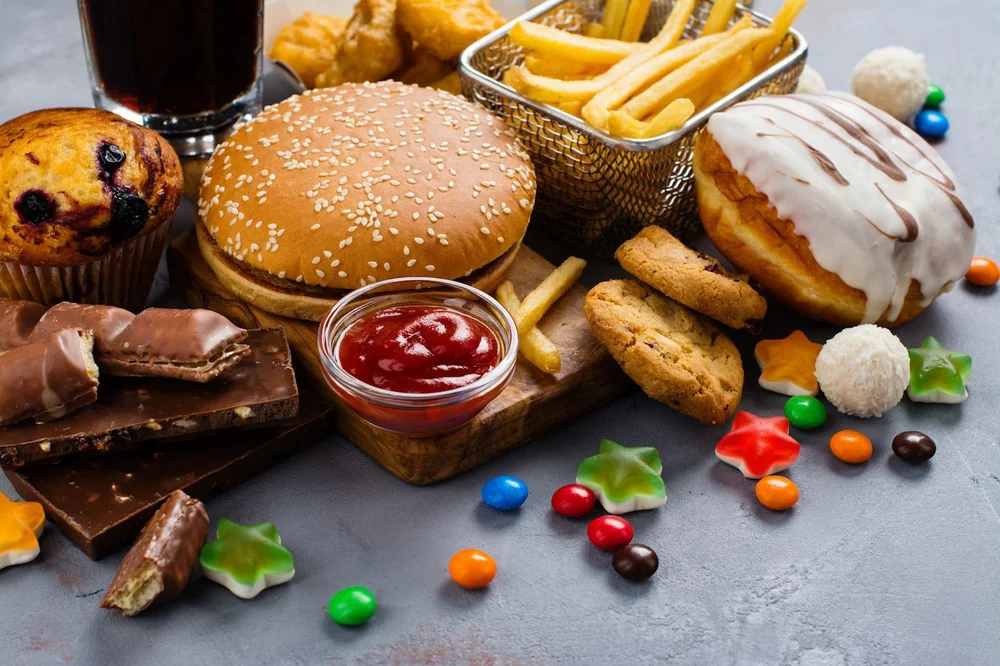What is Intuitive Eating and Will It Help Me Lose Weight?
Are you a serial dieter? Do you repeatedly lose weight and then gain it back again over time?
It’s an all-too-common scenario that can take a toll on health and well-being. Research shows that the influence of diet culture and focus on intentional weight loss may lead to weight gain, poor body image, low self-esteem, and disordered eating.
For most people, diets may work temporarily, but not for the long haul. Experts estimate that anywhere from 80% to 95% of dieters eventually gain back the weight they lose.
Enter intuitive eating.
Developed by two dieticians nearly 30 years ago, intuitive eating takes the focus off weight loss and places it on listening to one’s internal cues on hunger and fullness. It facilitates restoring a healthy relationship with food by practicing 10 guiding principles.
And, although intuitive eating isn’t designed to promote weight loss, it’s associated with meaningful health benefits.
Compared to dieting, various studies show that intuitive eating is associated with lower body mass index, less disordered eating, greater well-being, more positive body image, and a number of improved markers of health. While not conclusive, these associations are promising.
Let’s take a closer look at this gentler approach to eating.
What Is Intuitive Eating?

Intuitive eating doesn’t involve any sort of dieting, intentional weight loss, meal plans, or effort to achieve the ideal body diet culture promotes. There are no “off limit,” demonized, or idealized foods or food portions. In fact, it requires letting go of a diet mentality altogether!
Instead, intuitive eating is about giving yourself time and space to discover the natural cues your body gives you about hunger and satiety. You can learn to rely on your inner body wisdom to make your own choices about food. You can begin to discern the signs of physical hunger (builds gradually, growling tummy, fatigue, irritability) from emotional hunger (associated with comfort food cravings and mood). You have permission instead of restriction.
Intuitive eating holds that the skill to eat, to stop when you’re full, to eat when you feel hungry, and to consume satisfying foods is innate. You were born with it.
Intuitive eating is a radical notion, especially for a serial dieter.
You may be thinking, “If I don’t have restrictions, I’ll eat junk all day and go crazy.” And you might…temporarily. However, over time, it’s believed that if you practice the 10 principles of intuitive eating, your food choices and portions will likely even out. It often may be messy and imperfect at first, but less so as time goes on.
The 10 Principles of Intuitive Eating
Here are the 10 principles of intuitive eating originally proposed by nutritionists Evelyn Tribole and Elyse Resch in their book Intuitive Eating.
1. Reject Diet Mentality
Discard diet books and the notion that you need to be a certain weight to be worthy of love, happiness, health, and acceptance. It’s necessary to smash the hope or belief a diet or food plan will be the answer to fully embrace intuitive eating.
2. Honor Your Hunger
Keep your body biologically fed adequately. Becoming excessively hungry thwarts your ability to eat consciously or moderately. By practicing honoring your body’s first biological signal of hunger will help to rebuild trust in yourself and in food.
3. Make Peace with Food
Avoid deprivation, rules, and restriction. Instead, give yourself unconditional permission to eat. Deprivation and restriction often lead to overeating and intense feelings of guilt.
4. Challenge the Food Police
Get curious about your thoughts, especially the ones that tell you certain good foods are bad and bad foods are good. Start to question and discard these types of negative thoughts about foods.
5. Discover the Satisfaction Factor
There’s pleasure and satisfaction to be found in the eating experience. Enjoy eating! Create a pleasant environment. Sit down. Prepare something you like. This all leads to satisfaction and contentment. Providing this experience will help you to know you’ve had “enough” food.
6. Feel Your Fullness
Listen for your body’s cues that indicate you’re no longer hungry. Look for the signs that suggest you’re comfortably full. You may need to pause in the middle of eating to gauge your enjoyment of your food and your hunger level.
7. Treat Your Emotions with Kindness
Emotional eating is very common. Discern the difference between physical hunger and emotional hunger. Develop kind and loving ways to comfort, nurture, distract, and resolve emotional distress. Food may provide temporary comfort or numbing, but it doesn’t fix feelings or take them away.
8. Respect Your Body
Although magazines may tell us we need to look a certain way, your body has a genetic blueprint that may be something quite different than what the ideal diet culture promotes. Respect and accept your body. Enough with the criticism. Your body, and all bodies, deserve dignity.
9. Movement: Feel the Difference
Discard militant exercise! Shift your focus to how it feels to move your body, rather than the calorie-burning effect of exercise. Do movement and physical exercises you enjoy.
10. Honor Your Health with Gentle Nutrition
Choose foods that honor your health and taste buds while making you feel good. It’s okay not to be “perfect” in your meal or snack choice. It’s what you eat consistently that makes the difference in your physical and mental health. Wear your food choices loosely. Progress not perfection.
Many Paths to Health
Intuitive eating may not work for everyone. It can take a few months to a year to fully embrace it. Some people need more structure and guidelines, especially when they’re addressing specific health concerns.
But if you just can’t bear another diet, intuitive eating may be your ticket to lasting freedom. Consider working with a nutritionist who specializes in intuitive eating if you need or desire professional support.
At BrainMD, we’re dedicated to providing the highest purity nutrients to improve your physical health and overall well-being. For more information about our full list of brain healthy supplements, please visit us at BrainMD.
- What Are the 7 Healing Frequencies and Benefits of Sound Healing? - April 26, 2024
- Here Are Some of the Best Tension Release Exercises to Help You Feel Your Best! - April 17, 2024
- Foodscaping: How to Grow Healthy Foods In Your Own Garden! - April 12, 2024



